8 Unique Rules of Japanese Public Spaces
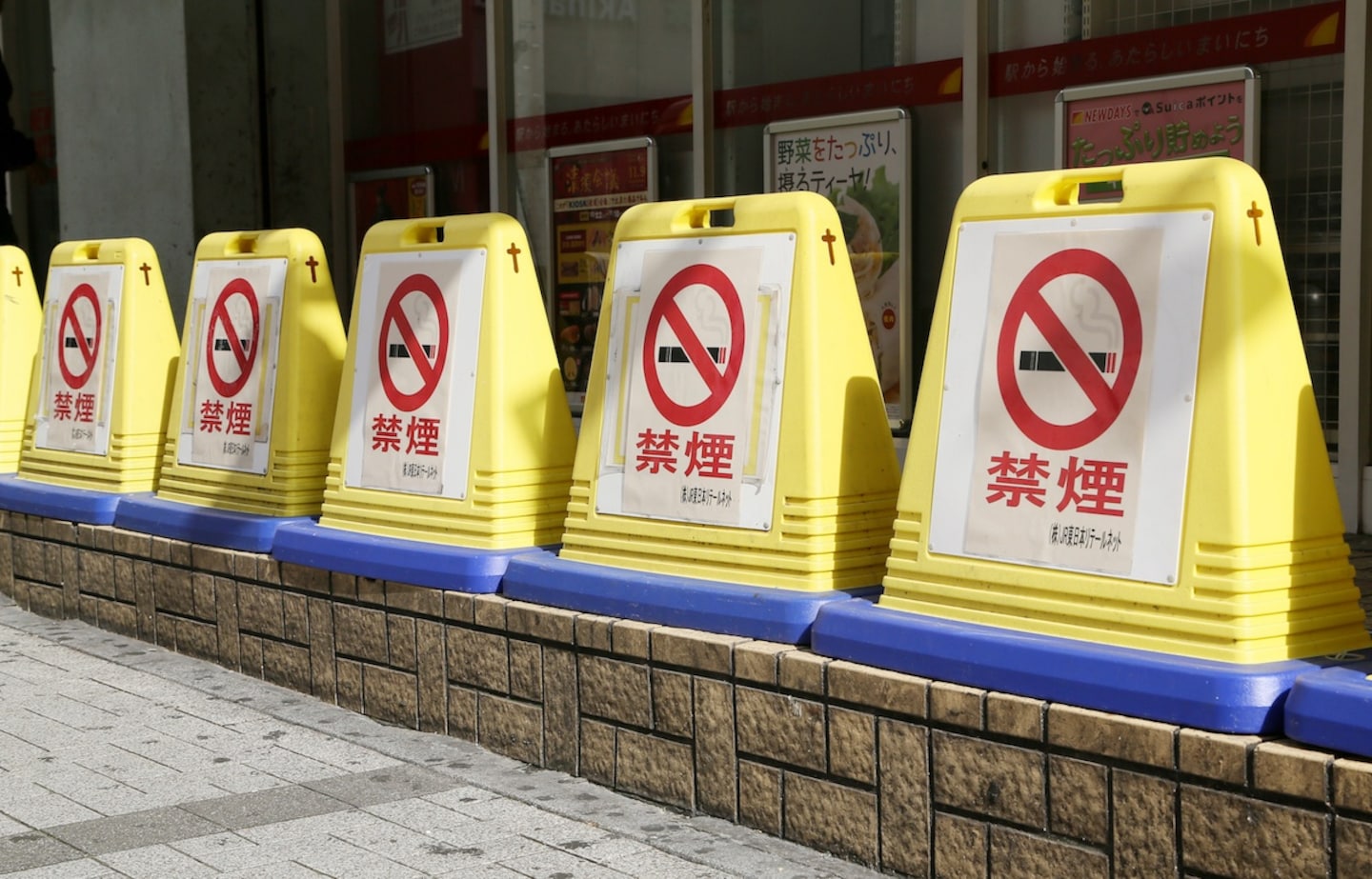
Each country has its own set of written and unwritten rules that first-time visitors might not know, and Japan's no exception. While you most likely won’t be called out for behaving out of the norm, knowing and observing the local customs will surely make a good impression on Japanese locals!
By Diletta Fabiani8. Stand on the Left When Riding the Escalator... Except in Kansai!
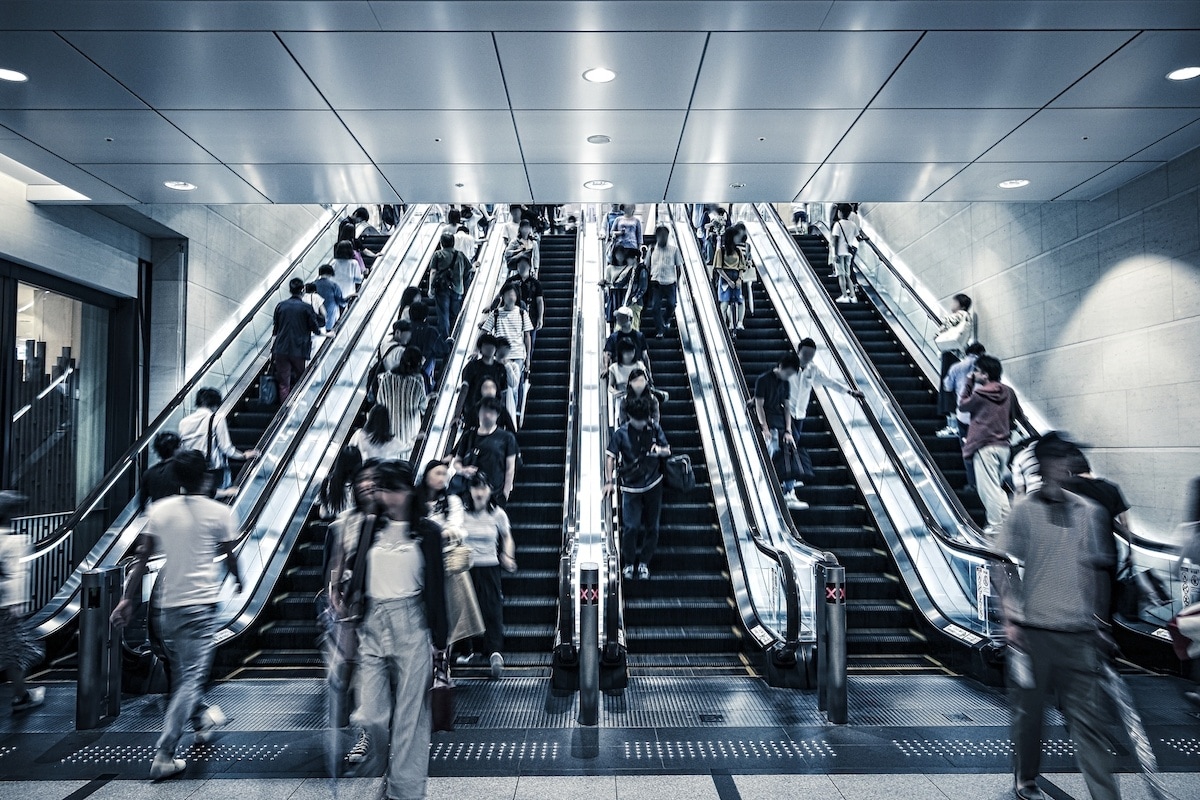
Japan has one of the highest population densities in the world, and people tend to do their best to not get in each other’s way. One way of doing that is standing to one side of the escalator so that people who are in a hurry can easily pass the others.
While Kanto citizens stand on the left side, people in Kansai stand on the right side. When in doubt, be sure to look at the other escalator riders and follow their example!
7. Keep That Elevator Door Open
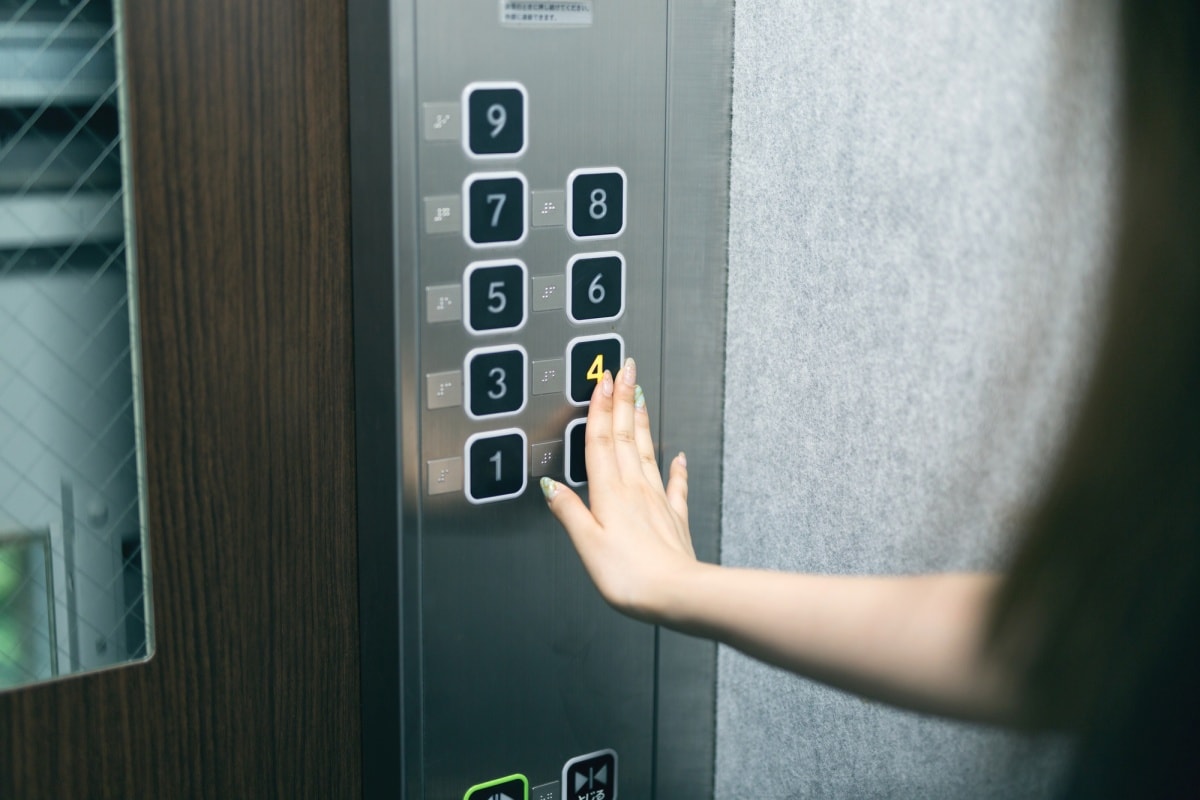
When riding an elevator, the person closest to the buttons will usually keep the door open for others when they enter and exit, until they reach their own floor. They might also press floor buttons for other people if they're too far from the door and the elevator is crowded. It's a good idea to review your Japanese numbers!
6. Use the 'Sound Princess'
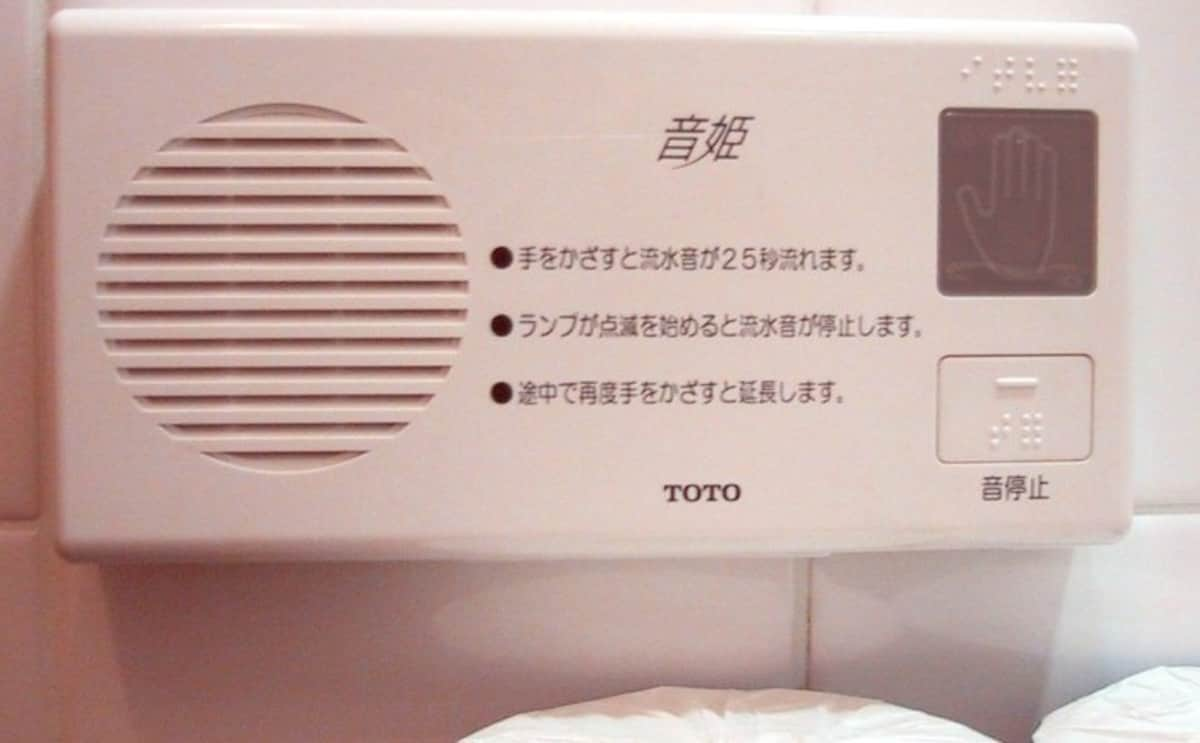
https://en.wikipedia.org/wiki/Toilets_in_Japan#The_Sound_Princess
If you’re a girl, you might have seen the object pictured above in public restrooms, called otohime (literally: "sound princess"). It's usually sensor-activated and reproduces the sound of a flushing toilet.
As many of these rules were created in order not to disturb those nearby, embarrassed Japanese women would flush the toilet while eliminating waste to cover such noise, and then flush again after the deed was done. This, however, wasted a good deal of water. The clever way to solve the problem, and make everyone happy, was to install a noise-making machine that would simulate the sound of a toilet flush.
While it’s not mandatory for you to use it, feel free to give it a try!
5. Cover Your Wet Umbrella
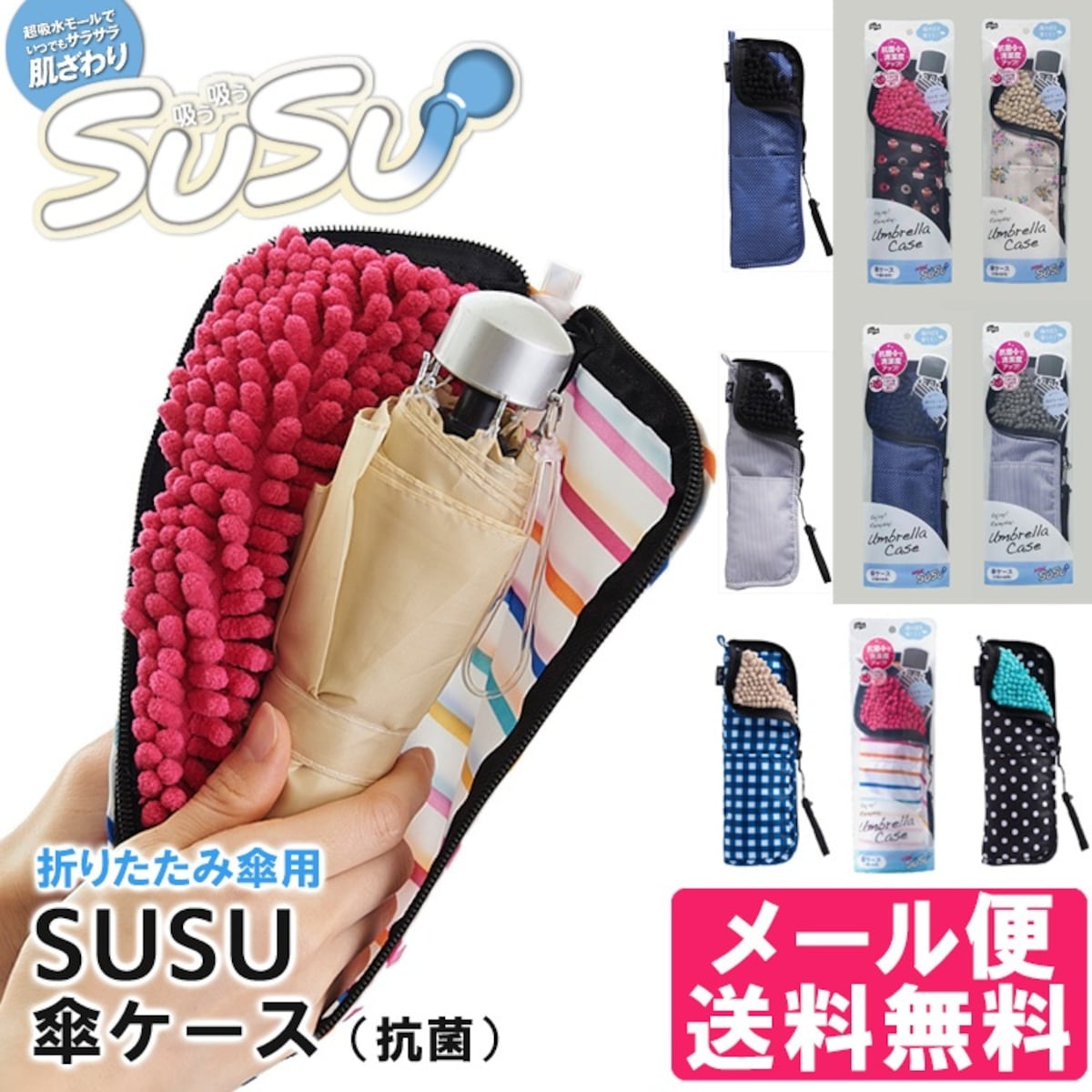
http://global.rakuten.com/en/store/flaner/item/10003965/
The rainy season is no joke in Japan, and in order to keep shops and restaurants clean, it's a good idea to take advantage of the umbrella plastic covers that you'll find at the entrances of shops and offices. Simply slide your umbrella in the plastic bag, and take it out and toss the bag away in the appointed trashcan when you leave the shop.
If you're worried about the environmental impact of all that plastic, you can easily find reusable umbrella covers (like the one pictured above) at ¥100 shops or online.
4. Avoid Blowing Your Nose in Public — Wear a Mask If You’re Sick
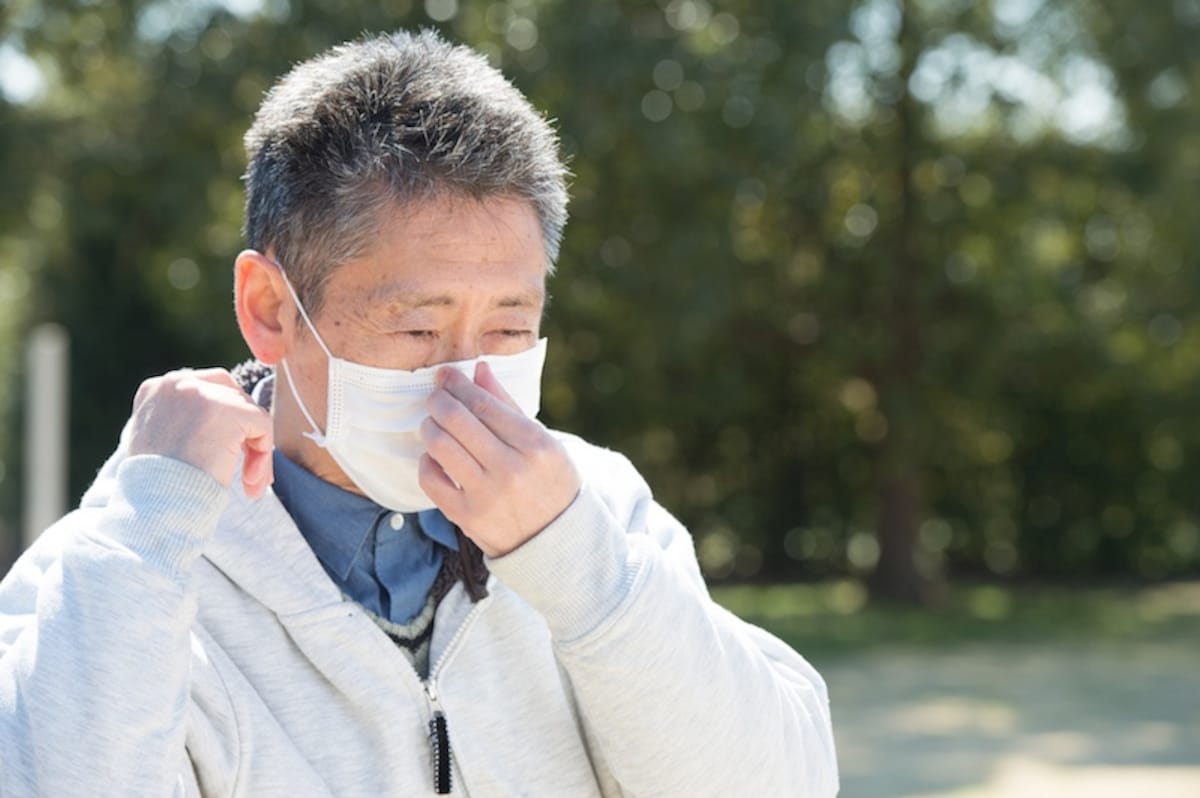
It’s common to hear Japanese people constantly sniff instead of blowing their noses. One explanation is that blowing your nose could spread germs around, and you don’t want to do that in a densely populated area of hard-working business people. Though, more likely, it's the distracting sound of loudly trumpeting into a tissue that makes others uncomfortable.
Wearing a surgical mask is also quite commonplace. Don’t think that the plague is spreading, it’s just the normal way to protect yourself and the others from the various seasonal sicknesses. In fact, it’s so normal that you can find several varieties of surgical masks with different features, sizes and even colors!
3. No Eating While Walking
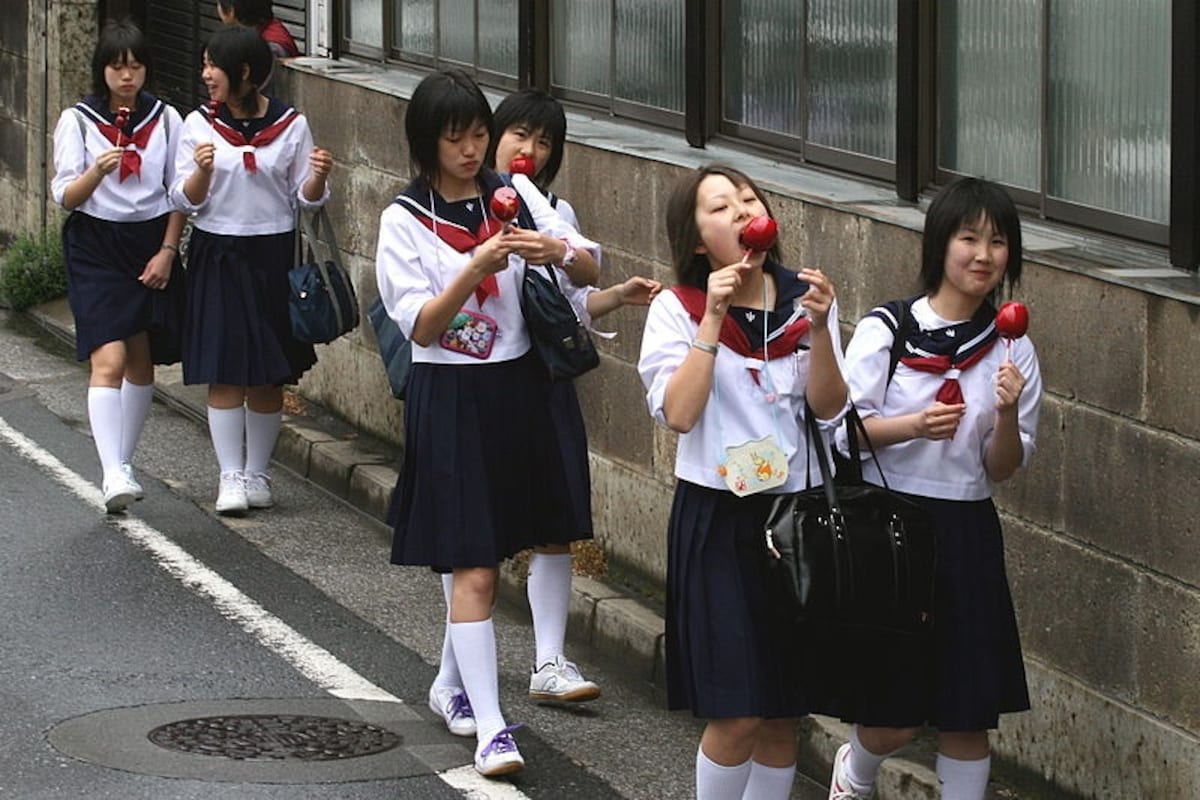
https://commons.wikimedia.org/wiki/File:Japanese_schoolgirls_walking_and_eating.jpg
If you’ve been in Japan long enough, you'll have noticed that almost no one eats on the street, with the exception being festivals. While eating on the street won’t send you to jail, you might get some weird looks. It’s hard to pinpoint an official explanation. Some consider it sloppy, while others believe it's due to the lack of trashcans. With the exception of convenience stores, there are no trashcans around, so eating on the street would mean taking the garbage with you all day.
While people typically don’t eat while walking, it’s normal to see customers standing outside convenience stores or next to food trucks—were there are trashcans handy. Also, you might see some small snacks like breads and rice balls being consumed quickly, but anything more (especially smelly or messy food) is generally frowned upon.
2. Don’t Make Phone Calls on the Train
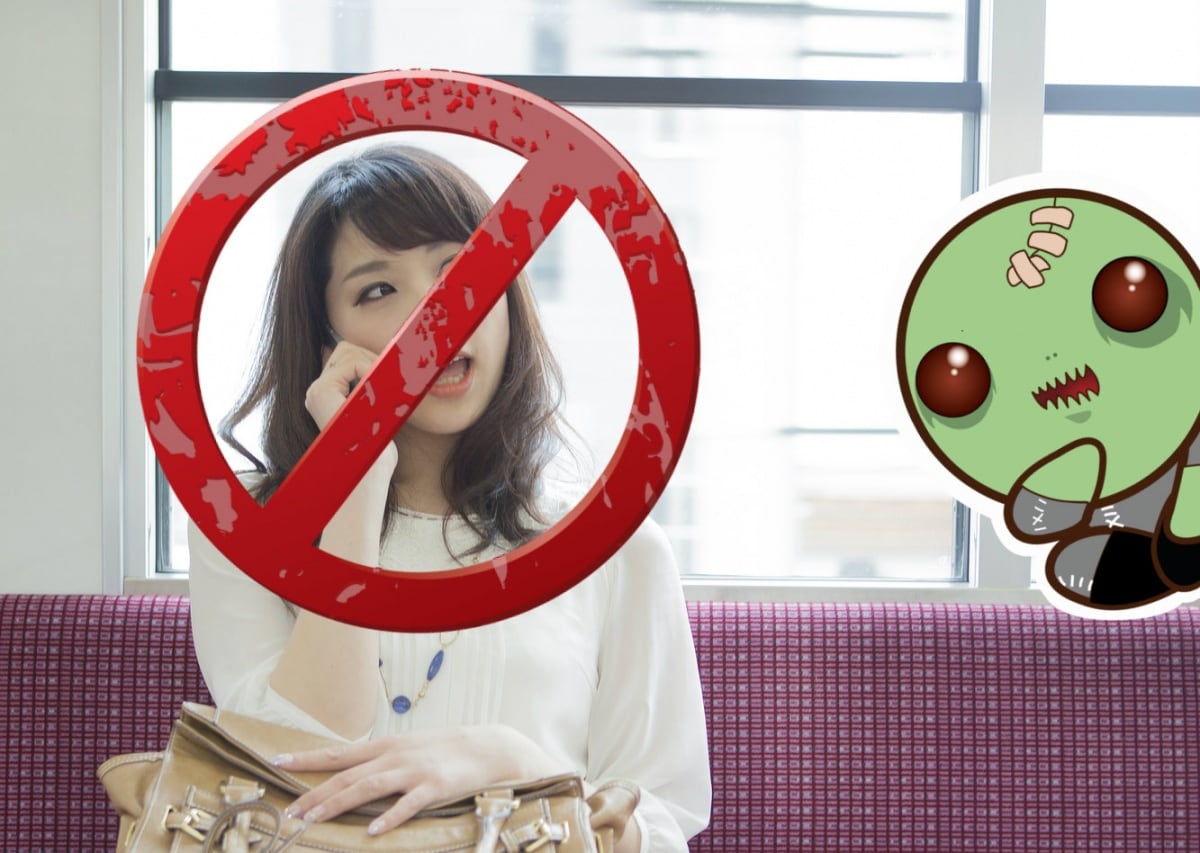
http://www.timetravelturtle.com/
In the spirit of not disturbing others, when riding trains it’s polite to put your cellphone on vibrate or silent mode. You'll actually hear this rule stated quite often on announcements in trains and stations. If someone does call you, it’s acceptable to briefly answer and tell them you’re on the train and you'll call them back once you get off.
1. Don’t Smoke on the Street!
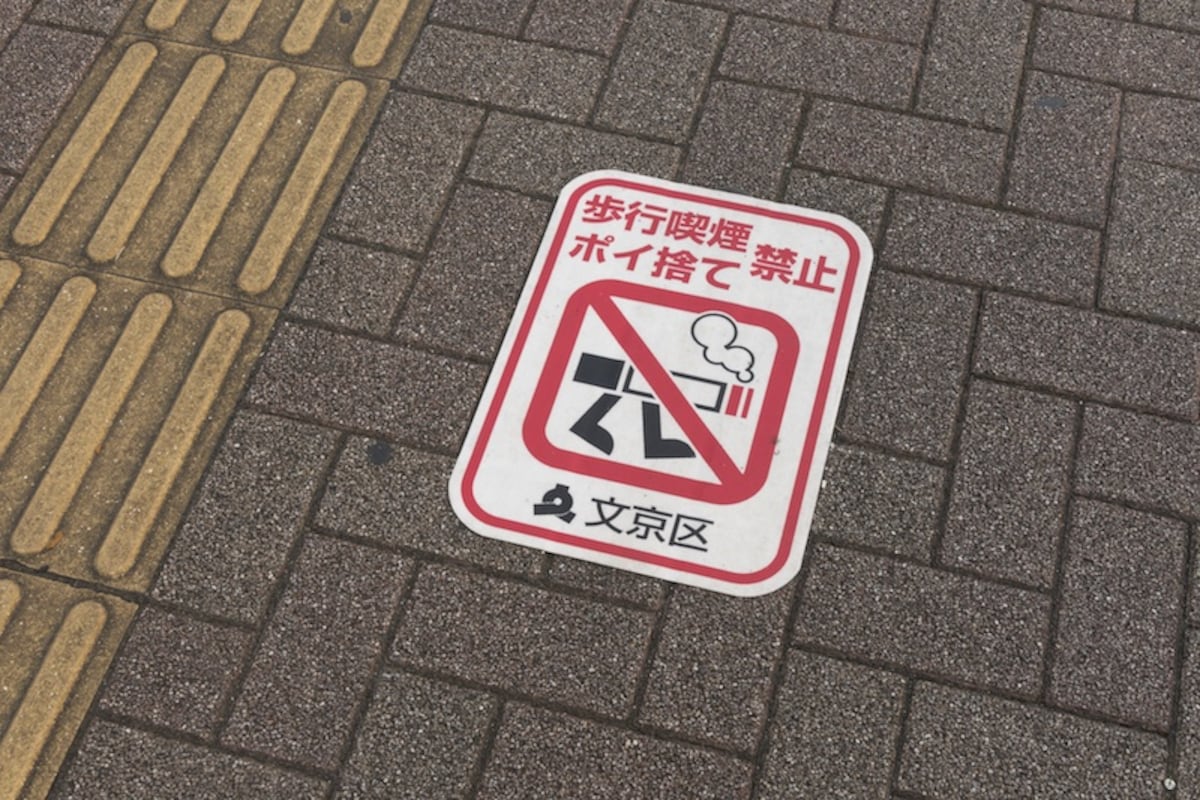
If you're walking around the city and would like to light up a cigarette, you must do it in a designated smoking area (like the one pictured above). Usually there's one near train stations. Big city streets tend to be very crowded and you don’t want to bother someone walking behind you with your secondhand smoke, or accidentally burn them with your lit cigarette. Also, you shouldn't litter by throwing your butt on the ground when you're finished.
Of all rules listed here, this is one you must actually observe, or you risk being fined. Contrary to this, however, smoking is actually allowed inside many restaurants, clubs and izakaya (Japanese pubs).
Is there any other rule that surprised or puzzled you the first time you came to Japan? Feel free to share your experience in the comments!



